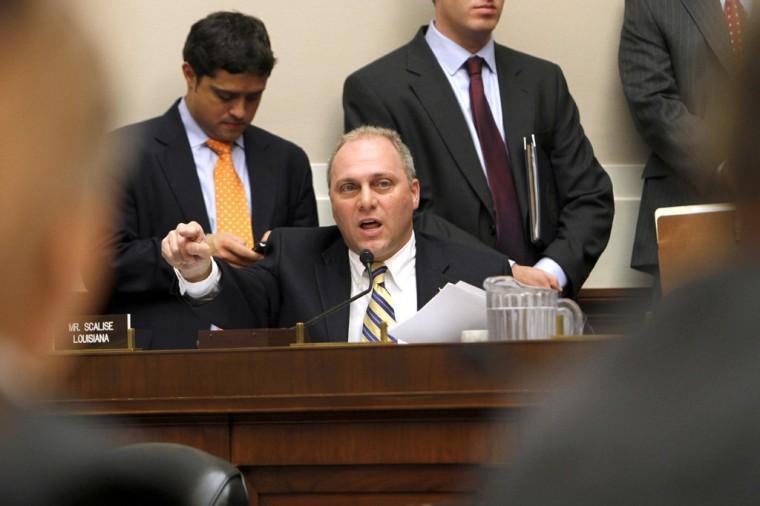Last week’s elections revealed a startling truth about Louisiana voters: We like our Congressmen. We like our guns. But we don’t care too much about our civil liberties.
Every congressman re-elected last week voted in September to reauthorize the FISA Amendments Act of 2008, a law which allowed the government to conduct dragnet surveillance over Americans’ electronic communications and granted telecommunications companies immunity from lawsuits involving this surveillance.
These men — our representatives — decided the government should be allowed to monitor your emails, phone calls and text messages without a warrant.
And we rewarded them by voting them back into office.
In fact, when it comes to the most prominent technology-related bills, our representatives — and by extension ourselves — seem out of touch.
Three of our congressmen, with the exceptions of Rep. Cedric Richmond from District 2 and Rep. John Fleming of District 4, voted for the Cyber Intelligence Sharing and Protection Act (CISPA) this summer — a bill that would have allowed private companies to share their users’ personal communications with federal agencies, bypassing existing privacy laws.
CISPA was opposed by major Internet innovators including Tim Berners-Lee, the inventor of the World Wide Web, and Mozilla, the company behind the Firefox web browser.
Rep. Steve Scalise of District 1 even co-sponsored the infamous Stop Online Piracy Act (SOPA), which was especially painful for me considering he’s my representative and a fellow computer science major from LSU. Scalise did withdraw his sponsorship once pressured by vocal opponents.
This paints the picture of a state that’s behind the times technologically.
CISPA and SOPA were lambasted by several online communities such as Reddit when they were introduced, and FISA has its own share of hate from those most in tune with today’s technology.
Many of us geeks don’t like laws that fundamentally alter the Internet, and we don’t like knowing our communications can be easily monitored. We are acutely aware of the growing prevalence of Internet technologies and what the implications of these laws are for an increasingly digital society. Just look at how common smartphones are becoming.
Yet, our opinions in these regards are inconsequential, which is surprising, considering if we continue to take our state’s voting record into account. Us geeks are precisely who we’re trying to lure to the state.
Amendment 8 from last week’s ballot was designed to give a tax exemption to certain non-manufacturing businesses. Eligible businesses include such geek-filled industries as data services centers, research and development operations and digital media or software development, according to the Public Affairs Research Council of Louisiana (PAR).
However, it’s possible many of these businesses won’t be enticed by the possibility of property tax exemptions given our populace’s positions on policies that affect the digital realm.
Still, this inconsistency isn’t even the most striking information to take from the election results.
Not only do our representatives’ voting records demonstrate a disregard for our civil liberties and digital rights, it also reveals fundamental contradictions in the mindset of our state and maybe even the conservative ideology that dominates it.
We don’t think the government can run a massive rehaul of our health care structure, but we do think it can run a massive surveillance regime.
We voted to protect our Second Amendment right to bear arms with the strictest scrutiny last week, but we don’t even bat an eye when the Fourth Amendment is stripped of all relevancy by bills approved by our very own politicians.
Louisiana needs to be consistent.
If we are going to hold the Bill of Rights and our Founding Fathers on a pedestal, then we need to ensure all of those rights are protected.
If we are going to attempt to lure in new industries, then we cannot vote for those who side with policies antagonistic to their principles.
It’s time we stop re-electing politicians who vote against our interests.








